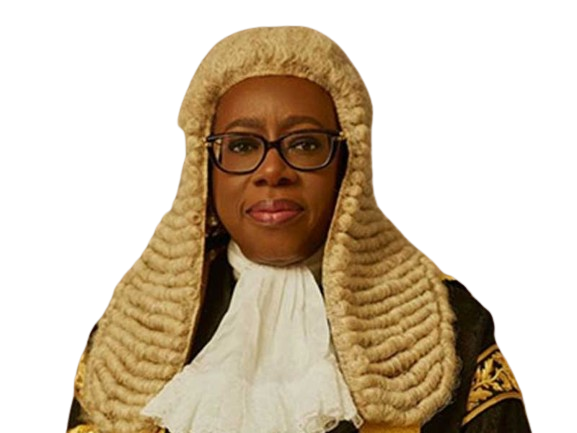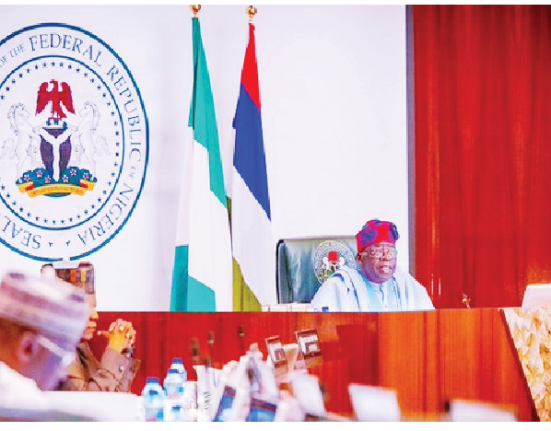The Chief Justice of Nigeria, Justice Kudirat Kekere-Ekun, has raised alarm over rising ethical challenges in the legal profession, warning that urgent reforms are needed to restore its credibility and uphold professional discipline.
Speaking at the inaugural Annual Lecture of the Body of Benchers and the public presentation of a report on the Legal Practitioners Disciplinary Committee (LPDC), Justice Kekere-Ekun stressed that unethical practices among legal practitioners pose a major threat to the justice system.
The report, titled “Half-A-Century of the Body of Benchers: The Past, The Present, and The Future of Maintaining the Ethics of the Legal Profession in Nigeria,” highlights key issues undermining legal practice in the country.
CJN Calls for Stronger Discipline in Legal Practice
Justice Kekere-Ekun emphasized that as the apex regulatory institution for legal professionals in Nigeria, the Body of Benchers must take the lead in enforcing ethical standards and professional discipline.
“The responsibility of upholding the legal profession’s sanctity rests heavily on its shoulders, and I have no doubt that the body will continue to rise to the occasion,” she stated.
She further stressed that fairness, transparency, and accountability must remain core principles in disciplining erring legal practitioners.
“The enforcement of professional discipline among lawyers is a vital function that must be pursued with fairness, transparency, and unwavering resolve,” she added.
Institutionalizing Legal Ethics Reforms
Justice Kekere-Ekun also called for the Annual Lecture to be institutionalized, proposing that it serve as a platform for:
Setting professional benchmarks for legal ethics.
Enhancing continuous legal education for practitioners.
Driving critical justice sector reforms to ensure the legal profession evolves with societal needs.
“I urge that this lecture be expanded to serve as a mechanism for advancing justice sector reforms and promoting professional ethics,” she stated.
Fashola Criticizes Legal Education System
Delivering the inaugural lecture, former Lagos State Governor and Senior Advocate of Nigeria (SAN), Babatunde Fashola, criticized the one-year Nigerian Law School training, arguing that it lacks practical exposure to real courtroom experience.
According to him, legal education should focus more on practical training rather than theoretical learning.
“There is a grave danger when a person of unsuitable character, integrity, or competence slips through the cracks,” he warned.
Fashola argued that producing poorly trained lawyers, judges, prosecutors, and legal advisers compromises the entire justice system, putting lives and livelihoods at risk.
Calls for Specialized Legal Training
Fashola questioned whether the Body of Benchers still rigorously screens lawyers before admitting them to the Nigerian Bar, given the increasing concerns about ethical breaches in the legal profession.
“Has the time not come upon us to separate and specialize the training of solicitors from barristers or advocates?” he asked.
He proposed a new model where:
Post-university legal training for solicitors and advocates should be handled by accredited law firms.
The Nigerian Law School should focus on certification and examination rather than training.
“I recommend that post-university training of solicitors and advocates be left to accredited law firms nationwide, while the Law School remains a certification body,” he suggested.
Condemns Forum Shopping and Judicial Abuse
Fashola also criticized the abuse of the judicial process, particularly the practice of forum shopping, where lawyers deliberately file cases in favorable courts to manipulate outcomes.
“The public space is full of reports of multiplicity of suits and suggestions of forum shopping, aided by legal practitioners, in manifest abuse of the judicial process,” he said.
He called for strict disciplinary actions against lawyers involved in such practices, questioning why many erring lawyers are not held accountable.
Attorney General, Benchers Chairman Weigh In
The Attorney General of the Federation, Lateef Fagbemi (SAN), represented by Solicitor General of the Federation, Beatrice Jeddy-Agba, also addressed the gathering.
Fagbemi stressed the critical role of the Body of Benchers in ensuring justice, fairness, and the integrity of the legal profession.
“As legal professionals, we must ensure that we protect the law,” he said. “We must embrace change but do so with vigilance.”
Similarly, Chairman of the Body of Benchers, Adegoyega Awomolo (SAN), reflected on the evolution of the legal profession since the Body’s establishment in 1971.
He highlighted the impact of technology and globalization on legal practice, urging Nigerian lawyers to adapt to these changes.
Should Law Be A Second-Degree Program?
Awomolo also weighed in on the declining standards in legal education, questioning whether law should be a second-degree program to ensure that only mature and capable individuals enter the profession.
“There are common arguments that the standard of lawyers being produced today is lower than it was when the Body was established,” he noted.
“Perhaps the minimum qualification and age for law school admission should be reconsidered.”
The way forward is rising concerns over ethical misconduct, declining standards, and lack of professional discipline, legal practitioners are now under renewed pressure to restore the dignity of the profession.
Stakeholders at the event unanimously agreed that urgent reforms are needed to restore confidence in the legal system and ensure justice remains the cornerstone of Nigeria’s democracy.







